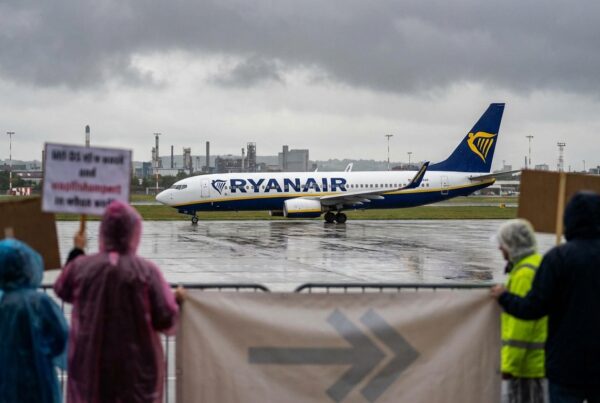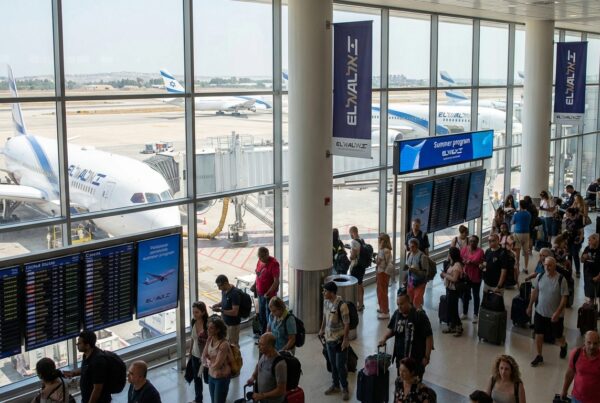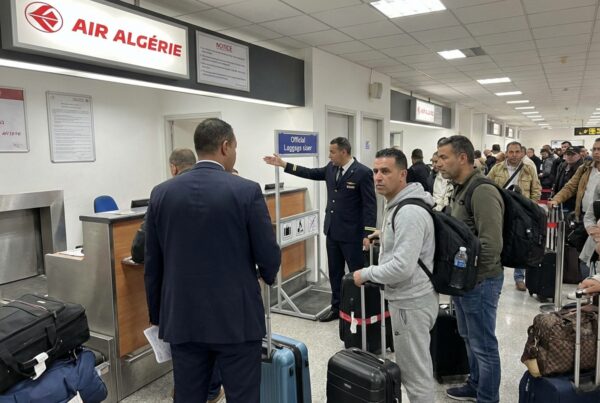Air Algérie recently announced a significant reform, phasing out the French language from the future plane tickets. The company will adopt the English language exclusively for its official documents and communications, in order to reinforce the company's image as a global player.internationalization of its services. This decision, motivated by the quest for global standards and greater coherence, is provoking mixed reactions among passengers and aviation specialists alike. The change is seen as a strategic and modern shift, aimed at optimizing the company's service offering.accessibility information and facilitate understanding on a global scale. Air Algérie affirms that this measure meets the demands of a fast-changing market without further compromises.
The recent announcement concerning the change of language onAir Algérie marks a significant evolution in the company's communications strategy. The decision to abandon French in favor of a more international language reflects the desire to adapt services to the requirements of an increasingly global clientele. This choice aims to simplify the understanding of key information for international travelers, and to reinforce the coherence of the user experience.
This change comes at a time when the modernization of travel systems is at the heart of the aeronautical industry's concerns. By adopting an unprecedented approach, Air Algérie wishes to offer its customers a more intuitive document-reading experience, just as subscribers benefit from smooth, banner-free browsing on certain specialist sites. The removal of unnecessary elements allows us to concentrate on the essentials, reinforcing the image of a company resolutely focused on the future.
The decision to remove the French language from airline tickets should be seen as a strategic decision to meet the challenges of constantly changing international communications. Indeed, many airlines, such as Delta Air LinesThese companies are adapting their offer to remain competitive in the face of global economic challenges. This linguistic shift harmonizes messages and reduces the risk of confusion between travelers, while meeting the demands of an increasingly diverse clientele.
At the same time, specialist literature and feedback from the industry illustrate the importance of clear, universal communication. Setting up a system where the validation of the pseudonym from the e-mail address guarantees that only one reader can post a comment reinforces the credibility of the dialogue and the security of exchanges. This approach recalls the principles of digital security and transparency appreciated by subscribers, who benefit from instant circulation of their comments, unlike non-subscribed readers whose comments are subject to prior moderation.
On the economic front, it is interesting to note that this initiative is part of a series of measures taken by various entities in the aviation sector. For example, the French Civil Aviation Authority (DGAC) recently announced a rate increase airline tickets from France. In addition, other pricing and tax changes, such as the increase in solidarity taxThis is indicative of a rapidly changing environment.
In this climate of transformation, reactions in the field are not slow in coming. Some travellers are expressing incomprehension at the abandonment of French, while some international customers are welcoming a more generic and accessible approach. The debate is intensifying, particularly on the platforms where comments, published instantly by subscribers, are fuelling impassioned discussions on the modernization and standardization of services.
Comparisons with other airlines illustrate the contemporary challenges facing the sector. For example, recent tensions on the tarmacs, as seen in the debates surrounding TransaviaThese results show that customer satisfaction depends as much on the quality of information as on the efficiency of company procedures. The Group's annual results, like those reported by KLMThe "Innovations" report, for their part, stresses the importance of innovative measures to turn around performance that is deemed disappointing.
In conclusion, the abolition of French onAir Algérie is indicative of a global desire to rethink communication methods in the aeronautical sector. Beyond the purely linguistic aspect, this is an integrated approach based on a set of services facilitating optimized reading and more secure interaction with readers. This bold choice reminds us that innovation and adaptation of digital tools have become essential levers for meeting the challenges of an international market in the throes of redefinition.
A comparison ofAir Algérie
| Criteria | Brief description |
|---|---|
| Strategic objective | Standardizing international communications |
| Language eliminated | French withdrawn airline tickets |
| Preferred languages | Focus on Arabic and English |
| Impact on image | Reinforcing a modern, global identity |
| Anticipated reaction | Divided opinions among passengers |
| Internal innovation | Modernization of information media |
| Commercial adaptation | Simplifying and standardizing tickets |




